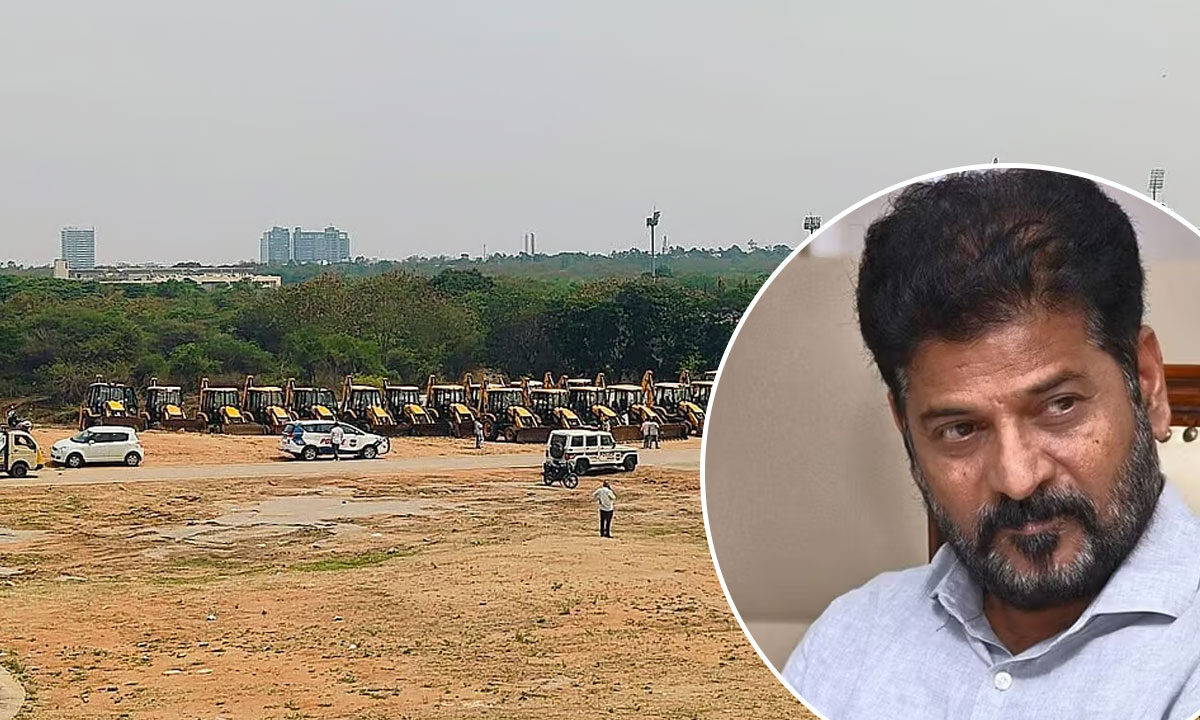Hyderabad: Public Land, Private Profits? Questions Mount Over Congress Govt’s Role in Gachibowli Project
The Kancha Gachibowli land project — once seen as an opportunity to promote development — is now drawing widespread criticism and scrutiny amid allegations of irregularities and backdoor deals.

The Kancha Gachibowli land project — once seen as an opportunity to promote development — is now drawing widespread criticism and scrutiny amid allegations of irregularities and backdoor deals. What began as a student-led green protest has now morphed into revelations of what many believe could be one of the biggest land scams in recent times, allegedly unfolding under the Revanth Reddy-led Congress government.
Table of Contents
400 Acres of Prime Land, Private Control?
In February this year, the Telangana Industrial Infrastructure Corporation (TGIIC) floated a Request for Proposal (RFP) to invite private real estate consultancies to take over planning, plotting, and executing the 400-acre Kancha Gachibowli land parcel. The RFP stipulates that only firms with 20+ years of experience and a turnover exceeding ₹500 crore would qualify.
The proposed project — estimated to cost between ₹500 crore and ₹800 crore — is meant to be developed in phases. However, urban planners and bureaucrats question why TGIIC, which has successfully developed areas like Financial District, Cherlapally, and Dandu Malkapur, would outsource such a major public project to private real estate giants.
Why Sideline Government Agencies?
Critics highlight that during the previous BRS regime, similar large-scale land developments were handled by TGIIC and HMDA (Hyderabad Metropolitan Development Authority) collaboratively — as seen in Neopolis, Budvel, and Uppal Bhagayath. These agencies have both the experience and institutional integrity to manage the auctioning and layout planning processes.
“This seems like a well-planned move to open up one of Hyderabad’s most valuable land banks to private interests under the guise of consultancy,” said a former bureaucrat familiar with the state’s industrial land allotment policies.
Original Purpose Deviated?
Originally earmarked for IT and mixed-use development, Kancha Gachibowli is now at risk of being turned into a purely commercial venture. Handing over control to private players raises concerns over misuse of zoning regulations, value manipulation, and loss of public oversight.
A former TGIIC officer pointed out, “The Corporation may have outsourced parts of work to contractors in the past, but never handed over the complete master plan, plotting, and auction process to real estate consultants.”
Further raising eyebrows is the RFP clause allowing firms to outsource work to affiliates and sub-consultants, potentially diluting accountability and opening doors to vested interests.
Dubious Fundraising via Private Channels?
Adding fuel to the fire is the government’s decision to raise ₹10,000 crore via Non-Convertible Debentures (NCDs), not through nationalized banks like SBI, but via private lenders like ICICI Bank and Beacon Trusteeship Limited — a SEBI-approved private trustee. While the move is legally permitted, many question the motives behind bypassing public sector institutions.
Political Fallout Looms
With land valued at over ₹30,000 crore and a series of questionable decisions, the Revanth Reddy government faces growing criticism over its lack of transparency. Political observers warn that unless the state leadership issues clear justifications and reverses course on controversial decisions, the matter could turn into a major scandal.
As court intervention has temporarily stalled the auction, public trust hangs in the balance. The demand is loud and clear — development must not become a disguise for land exploitation.
